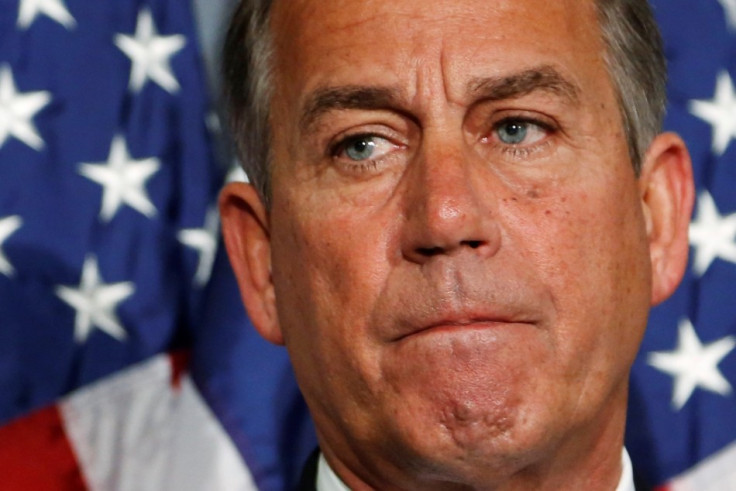John Boehner Slams Conservative Groups Opposing US Budget Deal

US House Speaker John Boehner hit back at four American conservative interest groups' for opposing the Paul Ryan-Patty Murray budget agreement that would prevent another US government shutdown post January.
Four powerful American groups: Heritage Action, the Club for Growth, FreedomWorks, and the Senate Conservatives Fund, are trying to get Republicans to oppose the provisional two-year budget deal, which needs House and Senate approval.
Slamming the groups at the Capitol, Boehner said on 11 December: "They're using our members, and they're using the American people for their own goals, this is ridiculous. If you're for more deficit reduction, you're for this agreement."
Ohio Republican and former Representative Steve LaTourette, a Boehner ally and the president of the centrist group Main Street Partnership, said the speaker's comments reflect "sheer frustration with these groups."
"There's nothing that could be crafted and signed into law that these outside groups would support," LaTourette told Bloomberg.
"I don't think that John Boehner's problem is with FreedomWorks or Heritage Action," said Matt Kibbe, president of FreedomWorks.
"His problem is with the very voters that were told that Republicans were fiscally responsible," Kibbe told the news agency.
"Over the next few days, lawmakers will have to explain to their constituents, many of whom are our members, what they've achieved by increasing spending, increasing taxes and offering up another round of promises waiting to be broken," said Dan Holler, a Heritage Action spokesman.
"That will be a really tough sell back home," Holler added.
10,000 Calls
Americans for Prosperity, a nonprofit group co-founded by billionaires Charles and David Koch, mobilised opposition to the budget deal before it was formally announced.
The group said its members made about 10,000 calls to lawmakers' offices and shot out 30,000 e-mails.
Bipartisan Deal
A cross-party congressional budget committee agreed on 10 December to fund government services for two more years. House Budget Committee chairman Ryan and his Senate counterpart, Murray, negotiated the deal in the wake of another government shutdown over federal spending.
The budget plan would set US discretionary spending at about $1.01tr (£616bn, €733bn) for the ongoing fiscal year, higher than the $967bn required in a 2011 budget plan.
The deal would ease automatic spending cuts by $40bn in 2014 and $20bn in 2015.
The deal proposes to reduce the federal deficit by $23bn over 10 years.
The agreement would raise fees on airline passengers. However, it retracts an airport security fee, imposed after the 2001 World Trade Center attacks, borne by airlines.
© Copyright IBTimes 2025. All rights reserved.






















